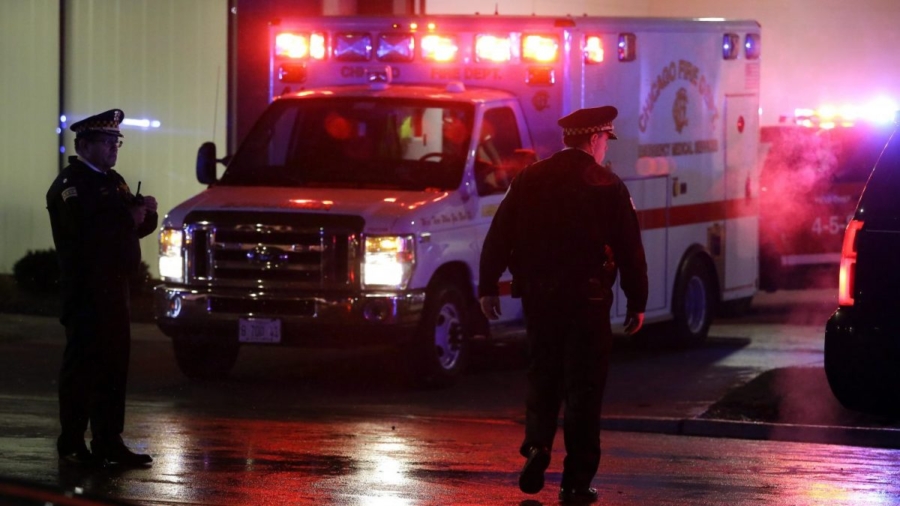Chicago’s Mount Sinai Hospital temporarily stopped accepting patients Sunday morning because they were at capacity following a series of shootings, a hospital official said.
The hospital went “on bypass” in the early morning, said Roberta Rakove, Senior VP for External Affairs.
Hospitals use the term “on bypass” when they stop accepting ambulance runs and those ambulances are diverted to other trauma centers. Mount Sinai Hospital is one of five trauma centers in Chicago, according to Rakove.
At its height early Sunday morning, Mount Sinai had 12 trauma patients, Rakove said. She could not provide information on their conditions.
Chicago Police Public Information Officer Anthony Guglielmi told CNN Sunday that officers responded to several multi-victim shooting incidents on the west side of Chicago stemming from gang conflict.
Police Chief Eddie Johnson addressed the press on Sunday and gave a rundown of the violent acts.

He noted three separate shootings, which resulted in 10 injuries, one of which was fatal. The incidents are all still under investigation.
Before the press conference, Johnson noted the recent mass shootings in Dayton, Ohio, and El Paso, Texas.
“You have to stop yourself and ask what will it take before we get a handle on what’s going on,” Johnson said. “Not only in Chicago, but across the country.”
“From police departments to the court systems to prosecutors to legislators—we have to come together and figure out more common-sense solutions to these problems because clearly too many of our citizens are being shot and killed.”
Rakove could not say when Mount Sinai Hospital went “on bypass,” but said it came “off bypass” at approximately 6:30 am. It has since resumed accepting patients.
She also couldn’t say how often Mount Sinai Hospital goes “on bypass,” but said they had an even busier weekend last year with more than 70 people shot.
“All Level 1 trauma centers were overwhelmed, but we all managed,” Rakove said of the previous year’s shootings. “This weekend was not that kind of weekend, but it was enough.”
Upticks in Violence During the Summer Months
A statement released on June 1, said that murders were down 7 percent and shootings down 13 percent from Jan. 1 through May 31 in Chicago. Those numbers were based on crimes committed in the same months a year earlier.
There were 186 homicides through May 31, compared with 200 by the same time last year, according to police department’s statement.
The department had previously announced a 10 percent decrease in homicides in April.
Speaking to CNN affiliate WLS on June 2, just after the weekend shootings that killed 10 people. Chicago Mayor Lori Lightfoot said, “The level of violence that we’ve seen across the city is just totally unacceptable.”
45 shot, 10 fatally, in Chicago weekend violence: https://t.co/wbVc5gK7Tq pic.twitter.com/qXNAynaqVn
— ABC 7 Chicago (@ABC7Chicago) June 3, 2019
Chicago has launched numerous efforts to curb gun violence.
In April, the department launched a summer safety plan that included increased deployment in high traffic areas and “tech and data-driven” law enforcement efforts.
Chicago Police Department Superintendent Eddie T. Johnson said in a statement in April that he thought the department was “well-prepared to keep the city safe this summer.”

An uptick in violence often follows a rise in temperature over the summer months in Chicago, where the winter cold keeps people indoors. With a rise in temperature come more social gatherings, more alcohol, more disputes … and more violence.
In a statement released Saturday, Johnson said the department “can always do better but I believe that our officers work diligently to provide consistent and fair policing in all of our neighborhoods and our efforts are paying in dividends.”
Epoch Times reporter Simon Veazey contributed to this article.
![]()


